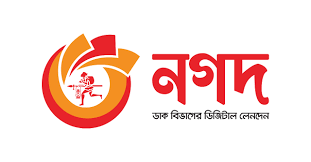In a move to boost competition and attract investment in Bangladesh’s mobile financial services (MFS) sector, the government has decided to privatise Nagad, Bangladesh Bank Governor Ahsan H Mansur announced on Wednesday.
“Unfortunately, we still have only one dominant MFS operator in the country We want to create more activity and competition in the MFS sector. We have decided to privatise Nagad at the highest level and bring in investors,” he said while speaking as the chief guest at Cashless Bangladesh Summit 2025.
In this regard, an official advertisement inviting potential investors will be published within the next week, the governor told the event.
The Institute of Cost and Management Accountants of Bangladesh (ICMAB) and Mastercard jointly organised the event at the Sonargaon Hotel in Dhaka.
He also confirmed that Nagad would be moved out from under the Bangladesh Post Office, which he said lacks the institutional capacity to operate a modern financial service.
“A technology company will need to be brought in as Nagad’s major shareholder,” he added.
Highlighting the urgency of accelerating digital transactions, the governor noted the rising costs associated with cash usage. “The cost of printing money is increasing by 10% annually—around Tk 2,000 crore each year. If this trend continues, how can we expect to build a digital economy?”
The summit brought together key stakeholders from the banking, fintech, regulatory, and policy communities to explore the challenges and opportunities in transitioning to a cashless economy.
Shish Haider Chowdhury, Secretary of the Information and Communication Technology Division, also attended the event as a special guest.
During the first session, Masrur Riaz, Chairman and CEO of Bangladesh Policy Exchange, delivered a keynote address on “Building a Cashless Economy: Critical Role of Fintechs.”
He emphasized that Bangladesh can draw valuable lessons from countries like China, India, and Sweden in navigating digital transformation.
Riaz recommended enabling wholesale and corporate digital payments, encouraging innovation, and investing in infrastructure to build a robust digital transaction ecosystem.
The session was moderated by Zeeshan Kingshulk Huq, Chief Commercial Officer of United Commercial Bank.
Cashless economy must not turn into income-less: Dr Debapriya
A transition to a cashless economy must not leave behind those without formal employment, warned Debapriya Bhattacharya, Distinguished Fellow at the Centre for Policy Dialogue (CPD). Instead, it should serve as a tool to generate income and promote financial inclusion.
Presenting the keynote paper at the summit, Bhattacharya highlighted the importance of inclusive digital transformation.
He emphasised that Bangladesh needs a system-wide, integrated approach to digitalisation—one that addresses both technological limitations and social challenges.
To encourage wider adoption of digital payments, he proposed targeted policy measures, including tax incentives, waivers on Merchant Discount Rates (MDR) for small vendors, and direct support for micro-merchants.
Bhattacharya also called for a more diversified payment ecosystem. He urged expansion of mobile financial services (MFS) beyond basic cash-in and cash-out functions, with a focus on their use in informal sectors such as roadside shops and for disbursing salaries in the readymade garments industry.
Collaboration between banks, fintech companies, telecom operators, and private enterprises will be key to building an inclusive and accessible digital payments landscape, he added.
Looking ahead, Bhattacharya positioned Bangladesh Bank as the central authority to oversee, regulate, and promote a secure and interoperable cashless system.
He recommended establishing a central taskforce to align efforts across key sectors—including banks, fintechs, telecoms, and government ministries—aimed at ensuring compliance, fostering innovation, and reducing the country’s cash-handling costs, which currently stand at an estimated Tk 20,000 crore annually.

